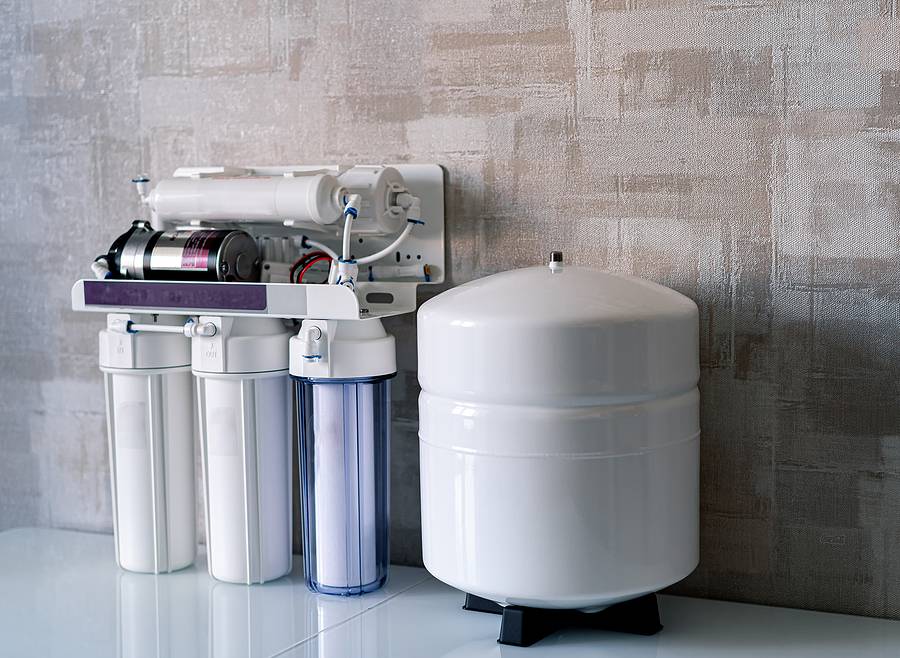Schedule a Plumber This Friday to Get 50$ OFF
Schedule a Plumber This Friday to Get 50$ OFF

A too small water softener might not meet your needs, while one that's too big could save water and energy. Mr. Rooter Plumbing breaks down the process so you can figure out the best size for your water softener installation.
Let's first examine what a water softener does: It removes calcium and magnesium deposits found in hard water supplies, which can cause various issues around your home. You might notice spots on dishes, soap not lathering well, or clogged pipes. Hard water can also be tough on your plumbing system, causing issues that might require the help of a plumber or even a full plumbing repair service in Killeen, TX.
When choosing the right size water softener, you need to consider two main things: your household’s water usage and the hardness of your water. Let’s break it down step by step.
The first thing to consider is how much water your household uses daily. An excellent way to estimate this is by considering how many people live in your home. On average, a person uses about 75 gallons of water each day. This number can change depending on how long showers are, how often laundry is done, and other water-related activities.
For example, if you have four people in your house, you multiply 75 by 4. This means your household uses about 300 gallons of water per day, which is key when figuring out the size of the water softener you need.
Next, you'll need to determine how hard your water is. You can get this information from your local water provider or ask a competent plumber to test it. Water hardness is measured in grains per gallon (gpg). Most areas have water hardness levels between 3 and 10 gpg, but some places can be as high as 20 gpg or more.
Knowing your water hardness helps determine how much work your water softener needs. The harder your water, the more capacity your water softener will need.
Now that you know your water usage and the hardness of your water, you can calculate the size of the water softener you need. A water softener’s size is measured in grains, which tells you how hard it can remove from the water before regenerating.
To determine the correct size, multiply the number of gallons your household uses per day by the hardness of your water. For example, if you use 300 gallons of water daily and your water has a hardness of 10 gpg, you would multiply 300 by 10. This gives you 3,000 grains per day.
Water softeners come in different sizes, usually 20,000 to 80,000 grains. You’ll want to choose one that can handle your daily grain requirement. In this example, a 24,000 or 32,000-grain water softener would work well.
Water softeners undergo regeneration, cleaning the minerals collected from the water. The larger the water softener, the less often it needs to regenerate. While a smaller softener might need to regenerate daily, a larger one may only need to do this once a week. Choosing a softener that balances efficiency with how often you’re willing to run the regeneration process is essential.
Getting the right size water softener is crucial for several reasons. If your softener is too small, it won’t be able to remove all the minerals from your water. This could lead to hard water problems like mineral buildup in your pipes, causing you to need a plumbing service or even more serious repairs. On the other hand, if your water softener is too large, you might be wasting water and energy because the system is regenerating more than it needs to.
Once you’ve chosen the right size water softener, the next step is the water softener installation. While some people attempt to do it themselves, hiring a professional plumbing service is usually a good idea. A licensed plumber in Holland, TX will know how to install your system and ensure it's set up to work properly with your plumbing.
If you’re not sure about the hardness of your water or how to calculate the right size softener, a plumber can help guide you through the process. They can test your water, recommend the right size, and take care of the water softener installation. A good plumbing service can also help maintain your water softener, ensuring it runs smoothly for years.
If you’re unsure about water softeners, it's always a good idea to contact Mr. Rooter Plumbing for help, from choosing the right softener to installing the water.
You expect clean and clear water when you open your home’s faucets and shower heads. When it’s not, you know that you have a hidden water line problem on your…
No matter where you live, heavy rains, groundwater, and clogged gutters can cause basement flooding. For many, basements are more than storage space; they provide extra living space and can…
Water is vital for daily life, but it can cause destruction if left unchecked. A minor slab leak can go undetected for a long time, leading to mold, water damage,…